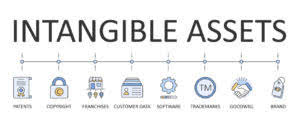
Pricing depends on factors such How to Invoice as a Freelancer as expertise, client goals, and project scope. Experienced consultants who understand value-based pricing can command significantly higher rates than those charging hourly or underpricing their services. The main distinction between these two forms of retainer fees is whether or not the lawyer has earned the money upfront or bills against the money and earns it over time. In some cases, an attorney may simply charge a flat fee for handling the entire case in lieu of charging a client a retainer fee to secure their services. The fee agreement will typically specify a retainer fee, which the lawyer will collect upfront before executing the contract for legal services and beginning work on the client’s case.

What Is a Retainer Fee for a Lawyer?

When you pay a retainer, the funds are not deposited into the lawyer’s business account. Legal ethics rules mandate the money be placed into a special trust account, often an Interest on Lawyers’ Trust Account (IOLTA). This account keeps the client’s money separate from the firm’s operating funds, and the money remains your property until the lawyer has earned it. For that reason, you may want to consider offering a combination of fee structures in addition to retainer fees—including hourly billing, flat rates, and contingency fees. Lawyers typically charge retainer fees ranging from $1,000 to $5,000, depending on their experience, location, and case complexity.

Ready to Simplify Your Legal Practice?
The retainer also acts as a commitment from the client to see the legal process through, providing financial stability for the lawyer and assuring dedication from the client. This mutual protection helps build trust and a solid working relationship between both parties involved in legal matters. It’s akin to putting a lawyer “on retainer” to ensure their time and experience are available over a specified period, even if you don’t need any specific legal services. Both the recruiter and the client should ensure that the retainer agreement includes clear legal terms regarding payment, confidentiality, candidate ownership, and other important factors.
What Are the Benefits of Retainers?
- At least if everything else gets hard, I know I’ve got a system there that’ll let me get paid.
- This could be due to non-performance, changes in business needs, or other unforeseen circumstances.
- A retainer lawyer is a lawyer you have ready and willing to help you with your legal cases.
- These include financial planners, investment advisors, attorneys, accountants, and consultants.
- Retainer fees can enhance the client experience by providing a sense of security and transparency.
- Likewise, recruiters should dedicate sufficient time and effort to meet the client’s requirements.
However, not understanding the terms involved can lead to potential pitfalls, making it vital for you to navigate this process with care. In summary, retainer fees are upfront payments to lawyers that guarantee access to legal services and cover early case expenses. These fees provide peace of mind for both clients and lawyers, ensuring financial stability and a positive client experience. The agreement is your legal contract should you choose to have a lawyer on retainer.
- One popular option is a flat fee, where the service provider charges a specific amount for a defined service, offering predictability without the need for a retainer account.
- The guaranteed income from retainer fees helps law firms manage their operational costs, such as salaries and office expenses more effectively.
- Dive deeper into retainer management best practices and tips to find out what this payment structure could do for your business’s bottom line.
- Similar to hourly rates, daily rates can be a great place to start as an independent consultant.
- This article explains retainer fee structures in recruitment, outlining their benefits and offering insights into best practices for businesses and recruiters.
- It’s imperative to have a clear understanding of the tasks your lawyer will undertake and how the retainer will be applied to these tasks.
Are retainers income for cash basis?
As such, the ‘expiry’ of the retainer depends on how these services are consumed. Additionally, clients should review the terms of the retainer agreement carefully to ensure they understand their obligations and the attorney’s responsibilities. In many cases, having an attorney on retainer can also lead to more favorable billing rates, given the long-term nature of the how do retainer fees work commitment.
In most cases, if the full retainer has not been spent, the remaining funds will be refunded to you at the end of your matter. If you are unsure of your attorney’s refund policy, check your retainer fee agreement for specific language regarding refunds. However, regardless of the outcome, attorneys must be able to bill their time for their work and their expertise. So when a retainer fee agreement is used, you will bear the cost but may not always have a successful outcome. When a professional’s work is client-centered, retainer fees allow providers to toggle between many different clients and distinguish their billing for each.

- Recurring work serves as an insurance policy of sorts, especially when times are tough.
- A security retainer is put into an escrow account or trust and your lawyer can access the money from it as they provide legal services and you incur fees.
- Ensure everything looks good and click “create contract” to have your retainer agreement generated and ready to send for e-signature.
- That’s why it’s important to have documents in place that set clear expectations and prevent any misunderstandings.
- Furthermore, with a retainer agreement, agencies can offer their services at discounted prices to improve client retention.
- Bonsai can provide you with resources for developing a marketing pitch before you approach clients.
For professionals, especially those charging an hourly rate, it’s crucial to understand these nuances to ensure appropriate financial and legal management. Additionally, a https://www.bookstime.com/ retainer agreement, which accompanies the fee, outlines the expectations and deliverables, minimizing scope creep or project deviations. By having such an agreement in place, agencies can better allocate their resources, manage their time, and prioritize projects.